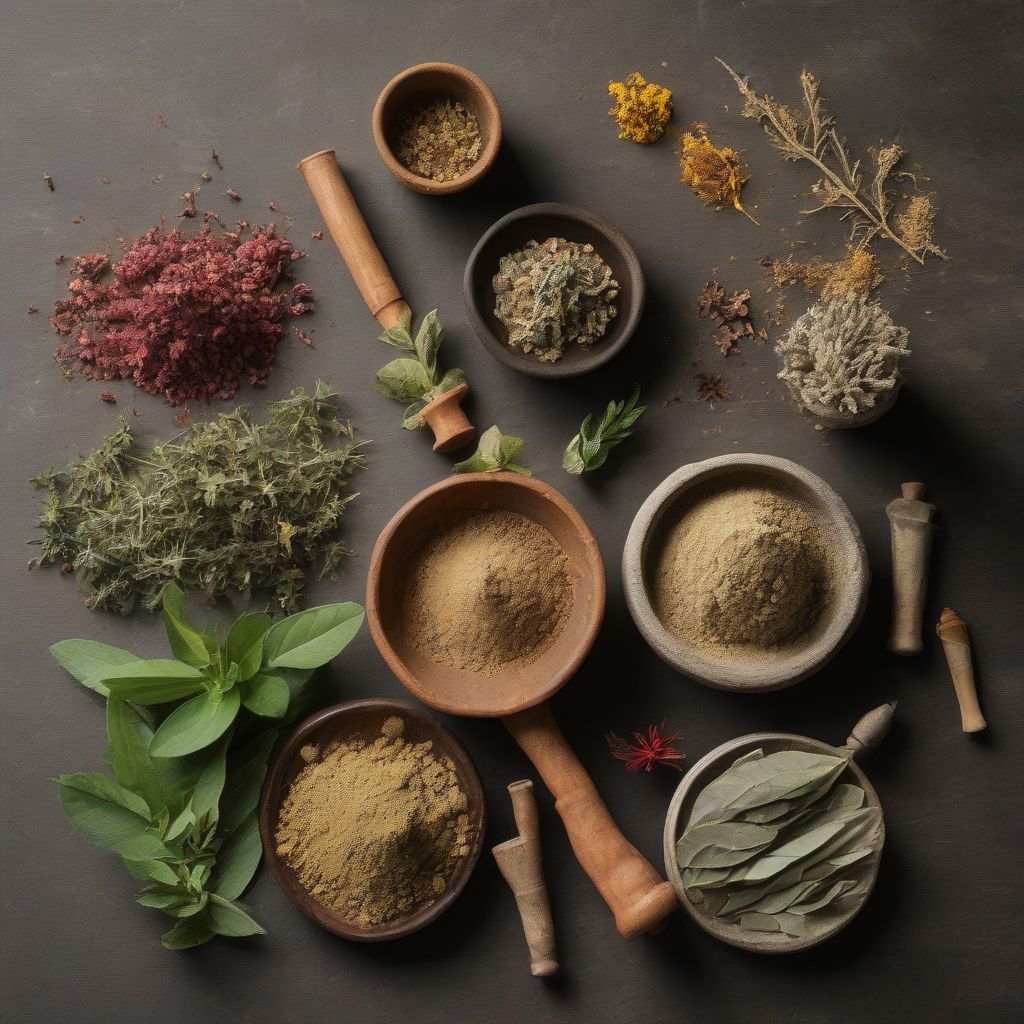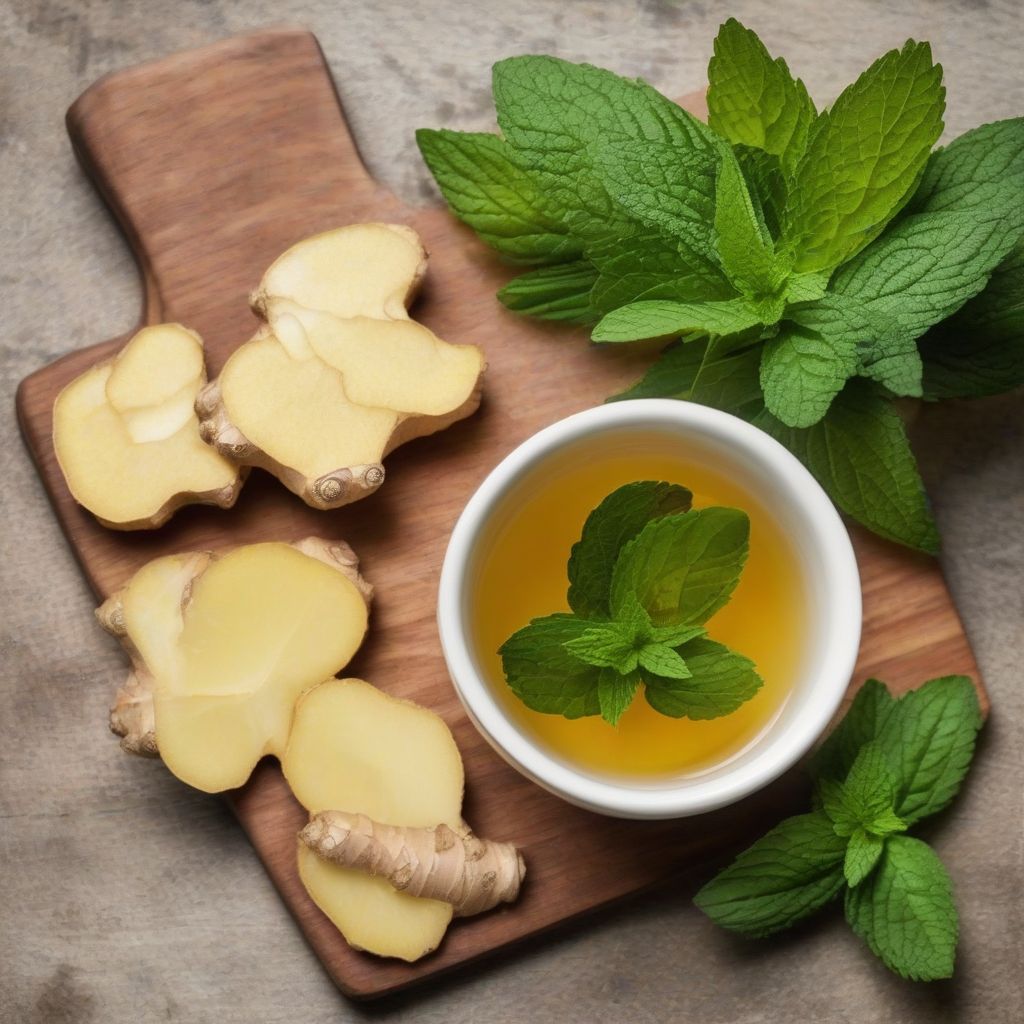“Let food be thy medicine and medicine be thy food.” – Hippocrates. These wise words spoken centuries ago still ring true today. As a nutritionist and meal prep coach, I’ve always been fascinated by the power of natural ingredients, especially herbs, in promoting holistic health and wellness. For over eight years, I’ve witnessed firsthand how incorporating these potent plants can lead to incredible transformations.
Herbs are more than just garnishes or aromatic additions to our meals. They’re packed with vitamins, minerals, and antioxidants that can boost our overall well-being. Think of them as nature’s gift, offering a gentle yet effective way to nourish and support our bodies from within.
This article will explore some of the best herbs for holistic health and wellness, uncovering their unique benefits and how you can easily incorporate them into your daily routine.
Adaptogens: Nature’s Stress Relievers
In today’s fast-paced world, stress seems almost unavoidable. But did you know certain herbs can help our bodies adapt and cope with stress more effectively? These are known as adaptogens.
Ashwagandha: Your Key to Calm and Focus
Ashwagandha, an ancient medicinal herb used in Ayurvedic practices for centuries, is a powerful adaptogen. Studies suggest that ashwagandha can help:
- Reduce stress and anxiety levels: It helps regulate cortisol, the stress hormone, promoting a sense of calm and relaxation.
- Improve sleep quality: Ashwagandha can contribute to more restful and sound sleep, leaving you feeling refreshed and energized.
- Boost brain function: Research indicates potential benefits for memory, focus, and cognitive performance.
How to use it: Ashwagandha is available in various forms, including powders, capsules, and teas.
Rhodiola: Enhance Energy and Resilience
Rhodiola, another impressive adaptogen, thrives in cold, mountainous regions. This herb is known to:
- Combat fatigue and boost energy levels: Rhodiola can help your body adapt to stress, making you feel more energized and less fatigued.
- Improve mood and reduce symptoms of depression: Studies show potential mood-boosting effects and a reduction in feelings of anxiety and depression.
- Enhance cognitive function: Rhodiola may also sharpen focus, improve memory, and support overall brain health.
How to use it: Rhodiola is often consumed in capsule form or as a tea.
 Adaptogenic Herbs
Adaptogenic Herbs
Herbs for Immunity and Fighting Inflammation
A robust immune system and controlled inflammation are crucial for overall health and well-being. These herbs can provide powerful support:
Elderberry: Your Go-to for Cold and Flu Season
Elderberry, with its deep purple berries, has gained immense popularity as a natural remedy, especially during cold and flu season.
- Potent antioxidant activity: Rich in antioxidants, elderberry helps fight free radicals, protecting your cells from damage.
- Immune-boosting properties: Studies suggest that elderberry may shorten the duration and severity of colds and flu.
- Anti-inflammatory effects: It can help reduce inflammation in the body, which is beneficial for various health conditions.
How to use it: Elderberry syrup is a popular and tasty way to enjoy its benefits. You can also find it in capsules, gummies, and teas.
Turmeric: The Golden Spice for Overall Wellness
Turmeric, the vibrant yellow spice commonly used in Indian cuisine, is a powerhouse of health benefits. Its active compound, curcumin, is responsible for its therapeutic properties.
- Potent anti-inflammatory action: Curcumin is a powerful anti-inflammatory agent that can help reduce pain and inflammation throughout the body.
- Immune system support: Research indicates that turmeric can boost the immune system, making it easier to fight off infections.
- May protect against chronic diseases: Studies suggest that turmeric may play a role in protecting against heart disease, Alzheimer’s disease, and even certain types of cancer.
How to use it: Incorporate turmeric into your cooking, enjoy it in golden milk lattes, or take it in supplement form.
Herbs for Digestion and Gut Health
A healthy gut is often referred to as the “second brain” because it plays a vital role in our overall health, impacting everything from digestion to immunity and even our mood.
Ginger: Soothe Your Stomach and Aid Digestion
Ginger, with its slightly spicy and warming qualities, has been used for centuries to ease digestive discomfort.
- Relieves nausea: Ginger is well-known for its ability to alleviate nausea, making it a popular choice for pregnant women and those undergoing chemotherapy.
- Reduces bloating and gas: It can help soothe the digestive system, easing bloating, gas, and indigestion.
- May improve appetite: Ginger can also stimulate appetite, which can be beneficial for individuals recovering from illness or experiencing loss of appetite.
How to use it: Enjoy ginger in teas, add it to stir-fries and smoothies, or take ginger capsules.
Peppermint: Calm Indigestion and IBS Symptoms
Peppermint, with its refreshing aroma and taste, is more than just a breath freshener. It offers impressive digestive benefits as well.
- Soothes IBS symptoms: Studies show that peppermint oil can help alleviate symptoms of Irritable Bowel Syndrome (IBS) such as abdominal pain, bloating, and diarrhea.
- Relaxes digestive muscles: Peppermint can help relax the muscles in the digestive tract, allowing food to pass more easily.
- May reduce nausea: Similar to ginger, peppermint can also help alleviate nausea and vomiting.
How to use it: Enjoy peppermint tea after meals, add a few drops of peppermint oil to a diffuser, or take enteric-coated peppermint capsules.
 Digestive Herbs
Digestive Herbs
[amazon bestseller=”Digestive Enzymes”]
Conclusion: Embrace the Power of Herbs for Holistic Wellness
Incorporating these incredible herbs into your daily life can be a simple yet powerful way to enhance your holistic health and well-being. Whether you’re seeking stress relief, immune support, or improved digestion, there’s an herb out there waiting to be discovered.
Remember, it’s always best to consult with your healthcare provider before incorporating new herbs into your diet, especially if you’re pregnant, breastfeeding, or have any underlying health conditions.
Now that you’ve explored the world of healing herbs, I’d love to hear from you! What are your favorite ways to use herbs in your daily routine? Share your thoughts and experiences in the comments below!
